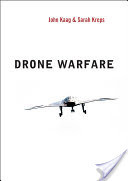The rhetoric and moral thinking about war has become sloppier as our weaponry has become more precise. Our reliance on precision weaponry risks becoming a stand-in for hard moral or legal decisions. Combatant status cannot be determined by an algorithm, and we should not be lulled into believing the technical precision can extricate us from complicated questions.


















